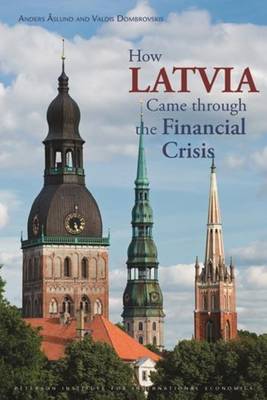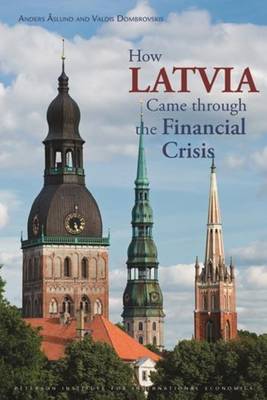
Door een staking bij bpost kan je online bestelling op dit moment iets langer onderweg zijn dan voorzien. Dringend iets nodig? Onze winkels ontvangen jou met open armen!
- Afhalen na 1 uur in een winkel met voorraad
- Gratis thuislevering in België vanaf € 30
- Ruim aanbod met 7 miljoen producten
Door een staking bij bpost kan je online bestelling op dit moment iets langer onderweg zijn dan voorzien. Dringend iets nodig? Onze winkels ontvangen jou met open armen!
- Afhalen na 1 uur in een winkel met voorraad
- Gratis thuislevering in België vanaf € 30
- Ruim aanbod met 7 miljoen producten
Zoeken
Omschrijving
Latvia stands out as the East European country hardest hit by the global financial crisis; it lost approximately 25 percent of its GDP between 2008 and 2010. It was also the most overheated economy before the crisis. But in the second half of 2010, Latvia returned to economic growth. How did this happen so quickly? Current Latvian Prime Minister Valdis Dombrovskis, who shepherded Latvia through the crisis, and renowned author Anders Åslund discuss why the Latvian economy became so overheated; why an IMF and European Union stabilization program was needed; what the Latvian government did to resolve the financial crisis and why it made these choices; and what the outcome has been. This book offers a rare insider's look at how a national government responded to a global financial crisis, made tough choices, and led the country back to economic growth.
Specificaties
Betrokkenen
- Auteur(s):
- Uitgeverij:
Inhoud
- Aantal bladzijden:
- 200
- Taal:
- Engels
- Reeks:
- Reeksnummer:
- nr. 17
Eigenschappen
- Productcode (EAN):
- 9780881326024
- Verschijningsdatum:
- 15/05/2011
- Uitvoering:
- Paperback
- Formaat:
- Trade paperback (VS)
- Afmetingen:
- 169 mm x 228 mm
- Gewicht:
- 254 g

Alleen bij Standaard Boekhandel
+ 74 punten op je klantenkaart van Standaard Boekhandel
Beoordelingen
We publiceren alleen reviews die voldoen aan de voorwaarden voor reviews. Bekijk onze voorwaarden voor reviews.











